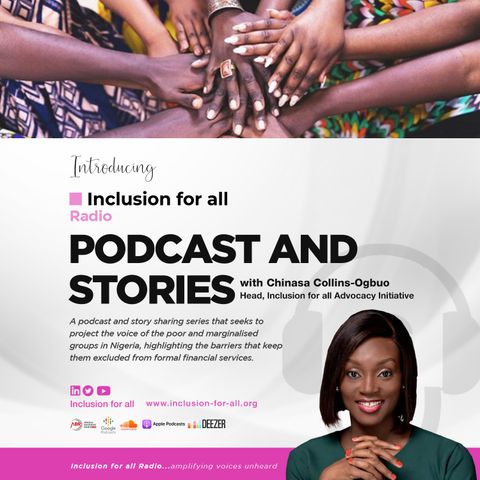
Contacts
Info
Inclusion for All Radio is a podcast and story-sharing series that seeks to project the voice of the poor and marginalized groups in Nigeria, highlighting the barriers that keep them...
show more
The Nigerian Naira Redesign Series: Enabling Financial Inclusion Or Extenuating Financial Exclusion?
Inclusion for All Radio is a podcast and story-sharing series that seeks to project the voice of the poor and marginalized groups in Nigeria, highlighting the barriers that keep them...
show moreInformation
| Author | Africa Business Radio |
| Organization | Africa Business Radio |
| Categories | Society & Culture |
| Website | - |
| info@africabusinessradio.com |
Copyright 2024 - Spreaker Inc. an iHeartMedia Company
